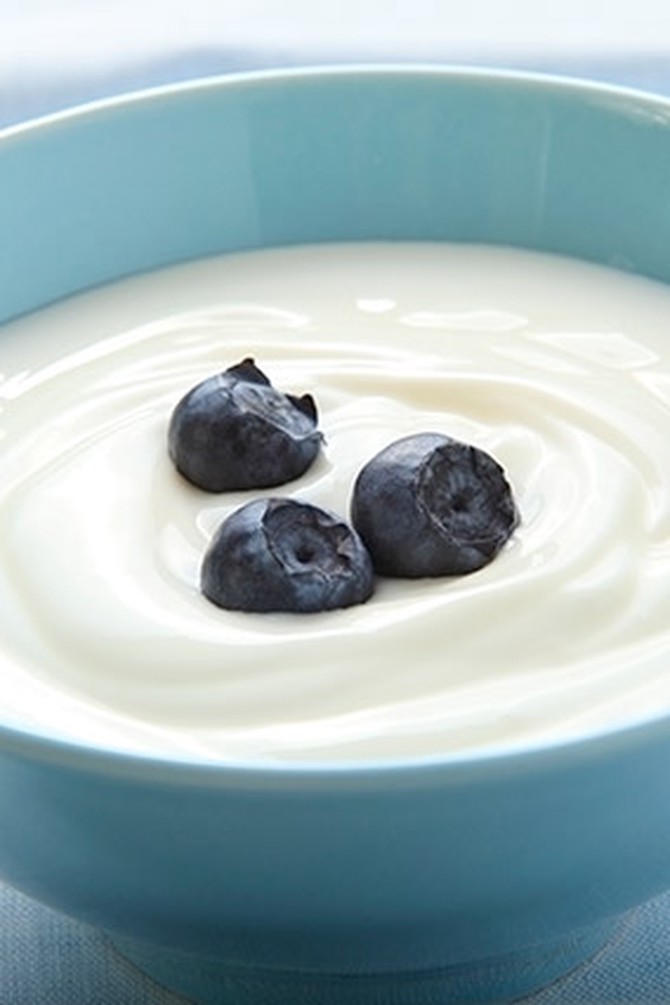6 Shocking Things That Make You Calmer and Happier
These stress and depression reducers may seem paradoxical (and a couple we wouldn't want to try deliberately), but that doesn't mean they don't work.
By Jena Pincott

Photo: Thinkstock
A Gut Takeover
Yogurt is the next Prozac—if a promising finding at Ireland's University College Cork pans out. A bacterial strain found in some types of yogurt—lactobacillus rhamnosus—affects the brains of mice, reducing their stress hormone levels and making them act calmer than those fed bacteria-free meals. The probiotic, which boosts receptors for the soothing neurotransmitter GABA, travels from bowels to brain via the body's long vagus nerve—and has potential as an all-natural therapy for anxiety and depression.

Photo: Thinkstock
Butterflies in the Stomach
Don't exterminate, cultivate. That fluttery fight-or-flight feeling you get when stressed can work in your favor. In a University of Rochester study, half the volunteers about to deliver a speech were told that pulse-racing, hand-drenching, gut-wrenching sensations are just nature's way of delivering more oxygen to the brain and helping us perform better under pressure. The result: They felt and did better than those who tried to ignore or squelch their stress—even if they were more nervous beforehand.

Photo: Thinkstock
Car Exhaust
Okay, this one shocked us—and, to be clear, we absolutely are not recommending this—but it may explain why urbanites aren't as crazy as they could be. Researchers at Tel Aviv University found that carbon monoxide (CO)—a tasteless, odorless (and toxic) gas present in car exhaust—has a slightly "narcotic effect." In city centers where CO levels were higher than average (but apparently not a health concern), people felt less stressed without knowing why; it even helped offset the stress of noise pollution. (But, and we can't underscore this enough, CO is a silent killer.)

Photo: Thinkstock
A Fuller In-Box
Isn't more work a formula for more stress? Nope—to the contrary, found a Harvard Business School leadership study. More responsibilities meant lower stress hormone levels—and less anxiety and burnout. While those who take on a lot may simply handle it better, the key (for all of us) is in feeling more powerful and in control. Crucially, the additional work must give you a morale boost, not drown you in drudgery.

Photo: Thinkstock
A World-Weary Sigh
It's a sure sign of frustration, disappointment, resignation and boredom. But sighing has an inspiring purpose, found researchers at the University of Leuven: It resets us, physically and mentally. Breathing too long in a steady, rhythmic state—as we do when worn out—causes lungs to stiffen. That soft, long exhale loosens the air sacs, which leads to a tiny but significant feeling of release.

Photo: Thinkstock
The Great Unmentionable
The ultimate downer—death—gets a bad rap as an anxiety inducer, but reminders of mortality can inspire us to be more peaceful and compassionate, found a University of Missouri review. Memento mori led religious fundamentalists to become less militant and more tolerant. Smokers kicked their nervous habit; others were less likely to get divorced. When a cemetery was in sight, passersby stopped 40 percent more often to help a stranger—a (presumably unconscious) attempt to reaffirm the good in life.
Next: 5 easy stress-busters you had no idea existed
Next: 5 easy stress-busters you had no idea existed
Published 05/17/2013

